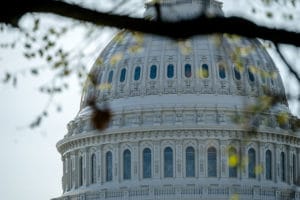Facilitates Lobbyist Control Organic Regulations, Guts Conservation Programs, Expands Subsidies for Factory Farms, and Hurts Local Food and Beginning Farmers
UPDATE: Farm Bill voted down in the U.S. House of Representatives
- The House failed to pass a farm bill as some Republicans sought a vote on a separate immigration plan.
- Thirty House Republicans voted against the legislation, while all Democrats opposed it.
- Democrats objected to a provision that would require stricter work and job training requirements for food stamp recipients.
Thank you to everyone who made the effort to contact your Congressional representatives and defend the integrity of the collaborative organic governance process that is an integral part of the Organic Foods Production Act of 1990. Undoubtedly, we will all have to remain on-guard when legislation comes back up in the House and Senate. There will be a farm bill but this is usually a painful process.
Read the full story at The Washington Post.
On April 18, the House Ag Committee passed the 2018 “Farm Bill,” titled the Agriculture and Nutrition Act of 2018 (H.R.2) on a partisan 26-20 vote. The full House of Representatives will be voting on the 2018 Farm Bill as early as tomorrow (May 18).
 |
There are many elements in the draft farm bill that are destructive in terms of environmental stewardship and undermine good governance and enforcement of the organic laws.
For organic agriculture the Bill refused to renew funding for programs that help family-scale farmers obtain organic certification, including the National Organic Certification Cost Share Program. Further, the federal crop insurance program favors factory farms, failing to address the needs of many producers including diversified and organic farmers, beginning farmers, and smaller-scale farm operations.
As another potential blow to organic integrity, the Bill would undermine the National Organic Standards Board’s (NOSB) given role. The National Organic Coalition gives the Farm Bill an “F” grade on NOSB reform due to changes to the NOSB that would:
- Allow seats currently designated for farmers, handlers and retailers on the NOSB to be filled with employees rather than business owners or general managers (meaning mega-farms and other operations could simply send employees to the table);
- Change the review of non-organic/synthetic materials petitions for inclusion on the National List of Allowed and Prohibited Substances an “expedited process” for substance listings that are related to post-harvest handling and food safety. That could put agribusiness lobbyists in the driver’s seat.
- A provision requiring the NOSB to establish a task force for the review of any petition regarding non-organic/synthetic materials that have been approved by FDA or EPA, to allow the agency to consult with the NOSB about the material. This task force, while undefined at this point, could mean that the Secretary or a petitioner backed up by the EPA or FDA may override the NOSB — the independent board was established by Congress in the first place because organic consumers do not trust all chemicals and food additives approved by the EPA and FDA (and demand more sound ecological impacts from organic farming).
The 2018 Farm Bill is also a bad deal for local, truly sustainable, and organic farmers, and the consumers that rely on them, because:
- Instead of increasing support, the Bill cuts conservation programs. The Conservation Stewardship Program gives farmers financial incentives to reduce erosion, protect drinking water, and preserve wildlife habitat. Often, it is organic or small farmers that benefit most from these programs.
- The Bill fails to support rural communities by eliminating tools and resources from USDA’s rural development programs that small business owners across rural America depend on to start and sustain their operations.
- The Bill hurts local food economies by undermining funding programs helping farmers connect and serve the growing markets for local and regional food, value-added products, and organic agriculture.
- The Bill would give bonuses for mega-farms effectively throwing out the current rules preventing corporations from receiving unlimited commodity payments.
- The Bill would increase nationwide food insecurity.
Mega-farms do not need more handouts and, for the good of society, ecological/organic farmers deserve our support! Preventing water and air pollution and cancer is more cost-effective than remediating them after the fact.
Tell your Representatives that the 2018 Farm Bill must preserve the powers of the NOSB and support responsible family-scale farmers!
Call your House Representative today!
- Call or email your Member of Congress and tell them to OPPOSE the House Farm Bill. Click here to find your Representative.
- Call the Capitol switchboard: (202) 224-3121.
- Ask for your Representative and, once they connect you, leave a message like this one:
Hello, my name is [____] and I am a constituent. Please vote NO on H.R. 2 – the 2018 Farm Bill. This bill will harm our organic farmers and communities. This bad law must be defeated so a good bill that supports sustainable, local, small businesses and disadvantaged farmers can be brought back for consideration later this year. It is important that the powers of the National Organic Standards Board are preserved to maintain trust in the organic marketplace. Thank you.
If you are an organic livestock farmer or rancher, or are involved in the industry, please be sure to mention that. Comments from organic consumers are vitally important too, especially if you tell your Representative why you care. If you are a consumer, you can also let your Representative know that this regulation is vital to your continued trust in the organic label.

